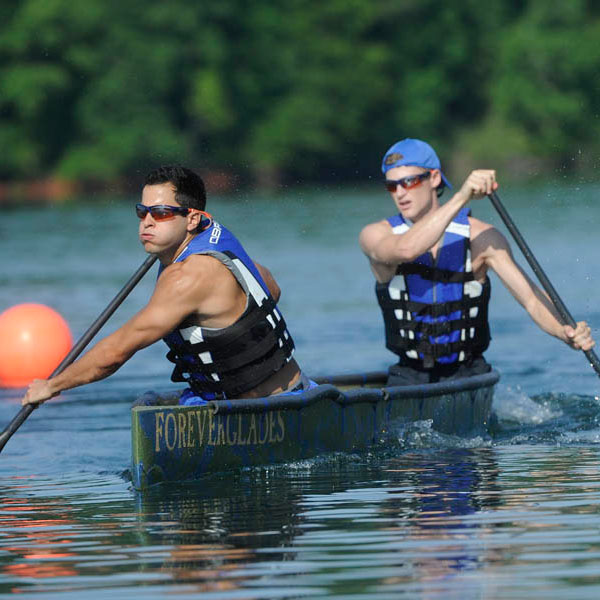
Call them the kings and queens of concrete and steel.
University of Florida civil engineering students have captured not one but two separate national recognitions.
In the more recent victory, UF earned the “America’s Cup of Civil Engineering” at the 28th annual American Society of Civil Engineers’ National Concrete Canoe Competition June 20-22 at Clemson University in South Carolina.
And in May, another team of Gator engineering students took the top prize in the National Student Steel Bridge Competition at the University of Missouri in Kansas City. They competed against 208 teams from the United States, Canada, Mexico and China.
“We were completely shocked,” canoe competition team captain Danielle Kennedy said after learning her team took home first. “We didn’t even get top five in final product, so I was not expecting this at all.”
After three days of competition against 21 other teams, the UF team and its canoe, Forever Glades, came out on top.
Over the course of the school year, 215 teams of civil engineering students logged thousands of hours researching, designing and constructing their unique concrete canoes in a quest for the winning combination of creativity, knowledge and teamwork to advance to the national competition.
The competition consists of both academic and athletic events, and the scores are divided into four components which are each worth 25 percent of the team’s final score. Students write a technical paper detailing the design and construction of their canoe and then give oral presentations about their year-long project. They are also judged on their final product, the canoe, and their accompanying display, which further explains their design process.
Finally, they put their canoe to the test in a series of five race events—men’s and women’s slalom/endurance races and men’s, women’s and co-ed sprint races. The winning team receives a $5,000 scholarship and a trophy.
After UF, the top overall winners were the California Polytechnic State University, San Luis Obispo (second); University of California, Berkeley (third); École de technologie supérieure (fourth); Clemson University (fifth).
In the steel bridge competition, the UF team won for lightness and structural efficiency, making UF the only school to win in two of the six categories.
After designing four prototypes, the group selected a final bridge design, which was then fully optimized by team captain Juliana Rochester.
In practice runs, assembly team members Justin Rayl, Kyle Willems and Andrew Jenkins got their time down to 7:29. During the competition, the polished floors were slick and they had to be careful with their speeds while they put the bridge together. Everything went according to plan with one minor exception – a bolt fell and touched the ground and incurred a 15-second penalty. The final time was 8:48, and the weight of the bridge was 10 pounds lighter than any other team’s.